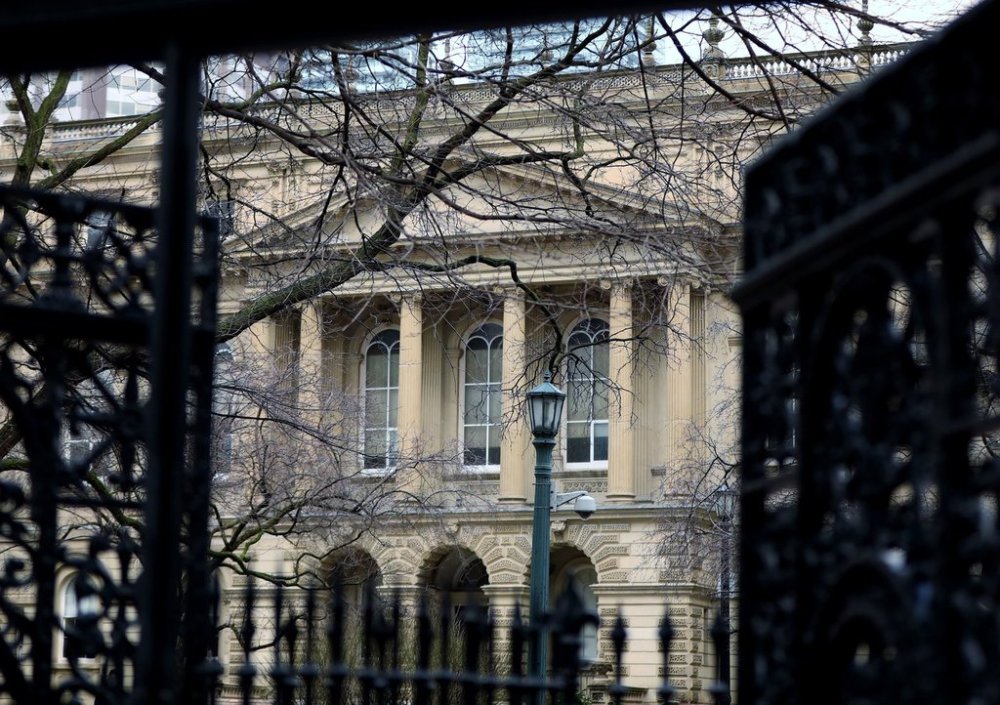Ontario man awaits clarity after new trial ordered in 1989 murder of 10-year-old girl
Advertisement
Read this article for free:
or
Already have an account? Log in here »
To continue reading, please subscribe:
Monthly Digital Subscription
$0 for the first 4 weeks*
- Enjoy unlimited reading on winnipegfreepress.com
- Read the E-Edition, our digital replica newspaper
- Access News Break, our award-winning app
- Play interactive puzzles
*No charge for 4 weeks then price increases to the regular rate of $19.00 plus GST every four weeks. Offer available to new and qualified returning subscribers only. Cancel any time.
Monthly Digital Subscription
$4.75/week*
- Enjoy unlimited reading on winnipegfreepress.com
- Read the E-Edition, our digital replica newspaper
- Access News Break, our award-winning app
- Play interactive puzzles
*Billed as $19 plus GST every four weeks. Cancel any time.
To continue reading, please subscribe:
Add Free Press access to your Brandon Sun subscription for only an additional
$1 for the first 4 weeks*
*Your next subscription payment will increase by $1.00 and you will be charged $16.99 plus GST for four weeks. After four weeks, your payment will increase to $23.99 plus GST every four weeks.
Read unlimited articles for free today:
or
Already have an account? Log in here »
TORONTO – A lawyer for an Ontario man whose conviction in the killing of a 10-year-old girl decades ago was set aside this week said Friday he hopes to have some clarity on the fate of his client’s case by the end of the year.
Timothy Rees’s legal team is trying to schedule a date in Superior Court next month to discuss what happens next, including whether another trial will be held, his lawyer James Lockyer said.
It is up to the Crown to decide whether to prosecute the case a second time and Lockyer said it is not uncommon in these types of cases for the Crown to opt against it.

Prosecutors also have the discretion to agree to enter an acquittal, which Lockyer said he is hoping for in Rees’s case — though he doesn’t anticipate it will happen.
“They fought this case tooth and nail,” he said.
The Court of Appeal for Ontario on Thursday concluded there was a miscarriage of justice and ordered a new trial for Rees, who was accused of killing Darla Thurrott in 1989.
He was found guilty of second-degree murder the following year and sentenced to life imprisonment with no possibility of parole for 15 years.
His conviction was referred back to the Appeal Court by the federal justice minister in 2023 after new information was identified.
The new challenge centred on a recording of a conversation between an officer and the landlord of the building, which police had not disclosed. The landlord lived in the same home as Darla and her family.
The court ruled that withholding the tape diminished the fairness of the trial by denying the defence material to further advance its theory of a third-party suspect.
Though cases such as Rees’s make headlines, the issue of wrongful convictions isn’t top of mind for most, as people largely don’t realize the extent of the problem or what contributes to it, said Kelly Lauzon, an adjunct professor at Carleton University’s School of Law and Legal Studies.
“A lot of people are raised … with the belief that the system works,” and that if someone is convicted it means they did what they’re accused of, she said.
But the justice system is run by humans and humans are prone to errors, she said.
“It’s not that we can’t make mistakes, but it’s (that) we need to acknowledge them and own up to them and make them right, as opposed to taking 20, 30, whatever, years to undo the wrong verdict,” said Lauzon, whose research focuses on wrongful convictions and miscarriages of justice.
We don’t actually know how prevalent wrongful convictions are because they can only be deemed wrongful after they’ve been overturned on appeal, she said.
People charged with smaller offences like shoplifting might not be able to challenge their conviction for financial or other reasons, she said. Some might plead guilty to offences because they can’t afford child care or time off work or even transportation to and from the courthouse, not to mention a lawyer, she added.
“There are … tons of people who have been wrongfully convicted for whatever reason for lesser offences, but we don’t know, because they haven’t been overturned. And nobody’s looking,” she said.
Some factors that can lead to wrongful convictions include false confessions, faulty eyewitness identification, flawed forensic science and tunnel vision among investigators, she said.
This report by The Canadian Press was first published Nov. 28, 2025.

